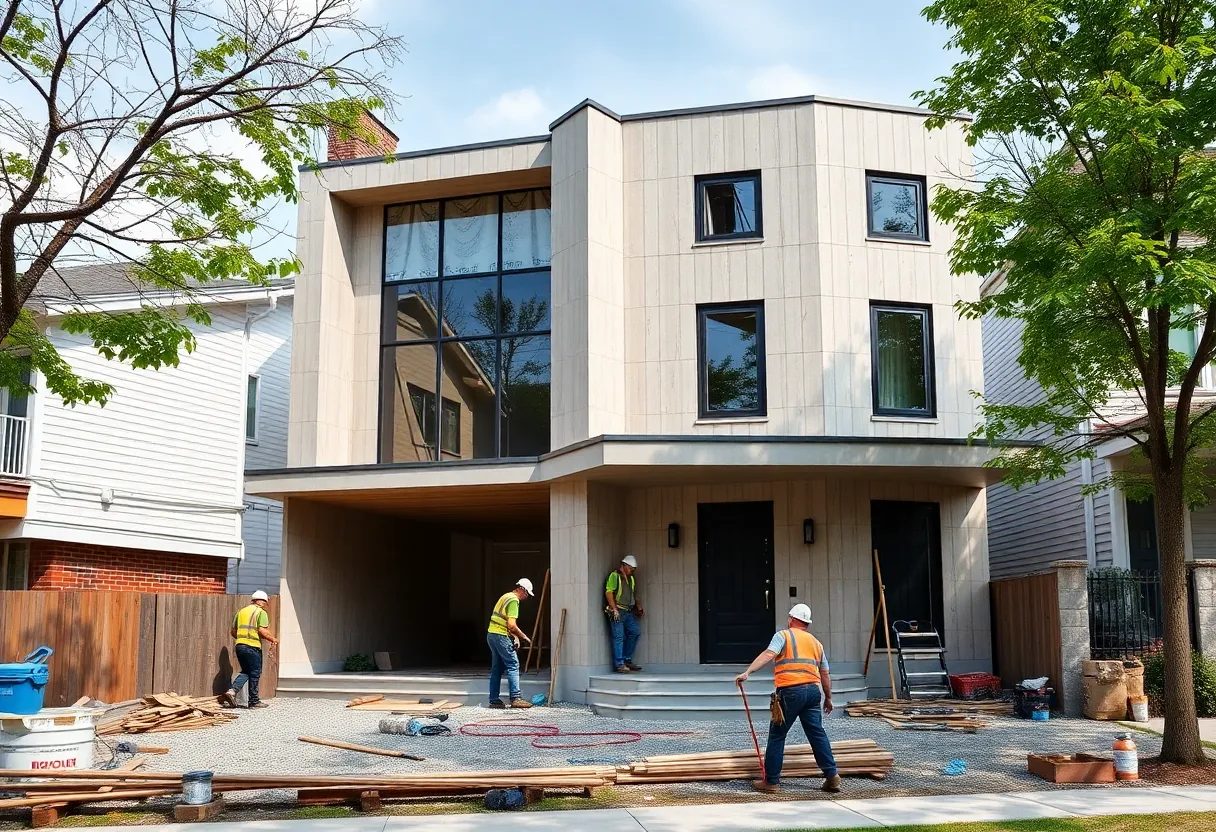News Summary
A bipartisan group of U.S. Senators has introduced the Resident Physician Shortage Reduction Act, seeking to add 14,000 Medicare-supported residency slots by 2033. This initiative aims to address the anticipated physician shortage and improve healthcare access, particularly in rural communities. As Arkansas faces critical primary care provider shortages, educational institutions work to retain more graduates within the state. The proposed legislation emphasizes funding for underserved areas, highlighting the urgent need for additional physicians to enhance patient care and reduce wait times.
Little Rock, Arkansas — Congress Moves to Expand Medicare-Backed Residency Slots to Address Physician Shortage
In an effort to tackle a looming nationwide physician shortage, a bipartisan group of U.S. Senators has introduced legislation aimed at funding more residency training positions backed by Medicare. The legislation, known as the Resident Physician Shortage Reduction Act, was recently unveiled by Senators John Boozman (R-Ark.), Raphael Warnock (D-Ga.), Susan Collins (R-Maine), and Charles Schumer (D-N.Y.).
Core Proposals and Key Goals
The bill seeks to increase the number of residency spots supported by Medicare by 14,000 through September 2033. This measure is designed to address the projected shortfall of physicians across the country, aiming to ease access to healthcare in underserved areas, especially rural communities. The legislation emphasizes prioritizing funding for rural hospitals and designated health professional shortage areas, where access to medical care remains limited.
Projected Physician Shortage and Current Trends
The American Association of Medical Colleges projects that the United States could face a shortage of between 13,500 and 86,000 physicians by 2036. This significant gap raises concerns about patient access, healthcare quality, and wait times. Currently, about 25% of medical residents in Arkansas are not enrolled in Medicare-supported graduate medical education programs, highlighting regional disparities and the ongoing challenge of equitable healthcare distribution.
State-Level Challenges: Arkansas as a Case Study
Arkansas, ranked 46th in the nation for healthcare access, faces acute shortages of primary care providers. The state has approximately 60 primary care doctors per 100,000 residents, significantly below the national average of 94 per 100,000. This discrepancy directly impacts patient care, leading to longer wait times and delayed diagnoses and treatments.
To mitigate this issue, educational institutions like the NYIT College of Osteopathic Medicine at Arkansas State are actively working to increase the local physician workforce. Reports indicate that over 70% of its graduates opt to remain and practice within Arkansas, helping to address the state’s specific needs.
Role of Healthcare Providers and Community Impact
In regions with physician shortages, other healthcare professionals such as nurse practitioners are increasingly stepping into primary care roles. This expanded scope of practice helps provide essential healthcare services but does not fully replace the need for additional physicians. The shortage leads to longer wait times for patients and can delay critical treatment, as illustrated in recent cases where patients experienced prolonged waits for care access.
Expert Opinions and Support for Legislation
Medical experts and healthcare leaders have emphasized the importance of increasing residency positions to bolster the physician workforce, especially in underserved areas. Domestically, the maldistribution of physicians remains a barrier, with rural communities suffering the most. The legislation aims to address these disparities by providing targeted support to rural hospitals and underserved regions.
Senator Boozman expressed strong support for the bill, highlighting that lifting restrictions on residency positions will expand the healthcare workforce, improve access, and ultimately strengthen the quality of care across communities.
Educational and Legislative Efforts
State-level initiatives, such as partnerships with medical schools, are also part of the broader strategy to alleviate physician shortages. These efforts focus on incentivizing medical students to practice within Arkansas and similar states. The combination of increased residency funding and educational opportunities aims to create a sustainable solution to the ongoing challenges in healthcare access.
Conclusion
The introduction of this legislation marks a significant federal effort to confront the impending physician shortage by increasing the number of Medicare-supported residency slots. Policymakers, educators, and healthcare providers continue working together to expand medical training opportunities, especially in rural and underserved areas, to ensure broader healthcare access for all Americans.
Deeper Dive: News & Info About This Topic
HERE Resources
Howard University Students Face Financial Struggles
Caribbean Medical Schools: A Solution to U.S. Physician Shortage
Young Doctors Demand Better Working Conditions
New Licensure Pathway for International Physicians in Texas
B.C. Recruitment Campaign to Address Healthcare Worker Shortages
British Columbia Seeks U.S. Healthcare Professionals to Address Staffing Shortages
British Columbia Attracts U.S. Healthcare Professionals to Combat Staffing Shortages
British Columbia’s Healthcare System Faces Staffing Crisis
Additional Resources
- Arkansas Online: Boozman Joins US Senate Colleagues on Bill
- Wikipedia: Physician Shortage
- KAIT8: Arkansas Battles Doctor Shortage
- Google Search: Medical Residency Shortage Arkansas
- 4029 TV: Arkansas Faces Primary Care Crisis
- Encyclopedia Britannica: Nurse Practitioner
- KXAN: Physician Shortage Solution
- Google News: Physician Shortage Arkansas
- THV11: Arkansas Doctors See Months-long Waiting List
Author: STAFF HERE WASHINGTON DC
The WASHINGTON DC STAFF WRITER represents the experienced team at HEREWashingtonDC.com, your go-to source for actionable local news and information in Washington, DC, and beyond. Specializing in "news you can use," we cover essential topics like product reviews for personal and business needs, local business directories, politics, real estate trends, neighborhood insights, and regional news affecting the area—with deep expertise drawn from years of dedicated reporting and strong community input, including local press releases and business updates. We deliver top reporting on high-value events such as the National Cherry Blossom Festival, Kennedy Center Honors, and the Washington Auto Show. Our coverage extends to key organizations like the Greater Washington Board of Trade and Destination DC, plus leading businesses in government contracting and technology that power the local economy such as Lockheed Martin and Amazon. As part of the broader HERE network, we provide comprehensive, credible insights into the dynamic landscape of the Washington metropolitan area.




